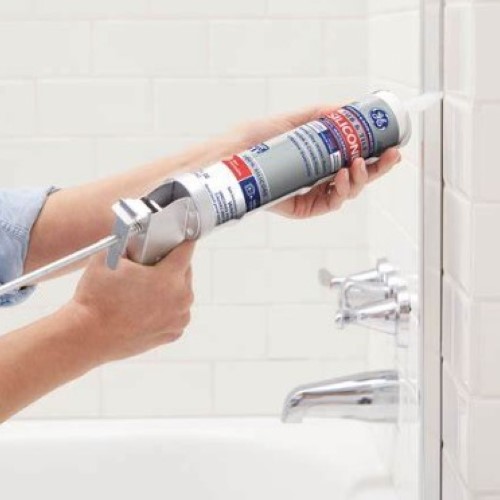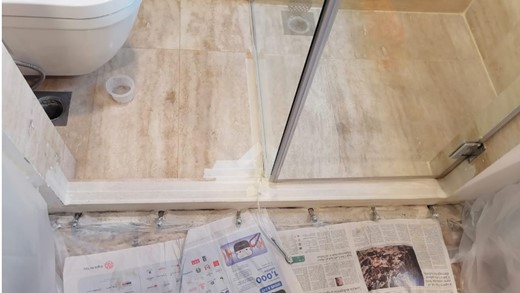Sealants are commonly used to provide protection and various benefits in a wide range of applications, including construction and household uses. Sealants create a watertight barrier, preventing the passage of water through joints, gaps, or surfaces. They help protect against water damage, such as leaks, moisture intrusion, and subsequent issues like mold and rot. Sealants can effectively seal gaps and cracks, to reduce the contraction and expansion of the gaps. Here are some of the key benefits of sealants:
- Increase durability
Sealants enhance the durability and longevity of various materials by protecting them from environmental factors like moisture, UV radiation, temperature fluctuations, and chemical exposure. They help prevent degradation, corrosion, and premature wear and tear.
- Improved energy efficiency:
In addition to air leakage prevention, sealants can also insulate surfaces, reducing heat transfer and improving energy efficiency. By sealing gaps and cracks, they minimize thermal bridging and enhance the effectiveness of insulation materials.
- Aesthetics
Sealants can be used to achieve a neat and finished appearance by filling and concealing joints, seams, and imperfections. Sealants come in a variety of colors and can be matched to the surrounding materials, providing a visually pleasing and cohesive look.
- Easy application and versatility
Sealants are easy to apply and can adapt to various surfaces and materials, including wood, metal, concrete, glass, and plastics. They come in different forms, such as caulks, adhesives, and coatings, offering versatility for different applications.
- Cost-effective maintenance
By preventing damage and improving the longevity of surfaces and structures, sealants can help reduce maintenance and excessive repair costs over time. They act as a proactive measure to protect against potential issues and extend the lifespan of the sealed materials.
It is important to note that the specific benefits of sealants can vary depending on the type of sealant, application method, and the intended use. It is recommended to select the appropriate sealant based on the specific requirements of your project or application.
Waterproofing sealant is used both sealing the exteriors to protect high-water areas inside the house from water damage.
Waterproofing sealants are specially designed to create a barrier against water and moisture, preventing their penetration into surfaces, joints, or gaps. These sealants are commonly used in a variety of applications where waterproofing is essential. Here are some common types of waterproofing sealants.
- Silicone sealants
One of the popular sealants for waterproofing usage in many households. They are excellent in water resistance and flexibility. It adheres well to various surfaces such as glass, metal, ceramics, and certain plastics area. They are commonly used in bathrooms, kitchens, and any areas that are highly exposed to moisture.
- Polyurethane sealants
This is higher durability and provides superior waterproofing properties to resist interior and exterior applications. Polyurethane is excellent adhesion, and elasticity, and is highly versatile, they can be used for both indoor and outdoor applications. It is commonly used in construction joints, concrete structures, masonry, and metal surfaces for both indoor and outdoor applications.
- Acrylic sealants
Provide good water resistance and are widely used for indoor applications. They are easy to apply, dry fast, and can be painted over. They are commonly used for sealing gaps around windows, doors, and baseboards.
- Epoxy sealants
These sealants are used for bonding and structural applications. They have excellent water resistance and exceptional strength and durability, that are suitable for waterproofing purposes. They are commonly used in wet areas such as showers, bathtubs, and toilet bowls.
The best waterproofing material is polyurethane, it can be applied seamlessly and penetrates the surface deeply and evenly. The polyurethane membrane will fill in even the finest cracks in concrete, reducing its water absorbency capacity.
Polyurethane (PU) Grouting, also known as polyurethane grouting, is a technique used for repairing and strengthening various structures, particularly in construction applications. It involves injecting a polyurethane-based grout material into voids, cracks, or gaps to fill and seal the area.
Some facts about Polyurethane (PU Grouting)
- Waterproofing
PU grouting is commonly used for waterproofing applications. The injected polyurethane grout expands upon contact with water, creating a water-resistant barrier and sealing leaks in structures such as concrete walls.
- Soil stabilisation
PU grouting is effective in stabilizing and strengthening loose and weak soils. When injected into the ground, the expanding polyurethane grout fills voids and improves soil stability to prevent settlement or soil erosion.
- Void and gaps filling
PU is used to fill voids, cavities, and cracks in various structures. By injecting the grout into the voids, it expands and fills the empty gaps, providing structural stability and preventing further damage.
- Non-disruptive
PU Grouting is a relatively fast and non-disruptive method of repair. The grout is injected through a small packer, minimizing the need for extensive hacking. It allows repairs in specific areas without causing significant disruption to the area.
- Versatility
PU Grouting can be used on various materials including concrete, masonry, brickwork, and rock. It is adaptable to different types
- Longevity and durability
Polyurethane grouts have good chemical resistance and resistance to aging, making them durable and long-lasting. Once cured, the grout forms a flexible, watertight, and stable seal that withstands environmental factors and maintains its performance over time.
PU grouting should be performed by experienced professionals like SWC Construction who have expertise in the technique.
SWC Construction has experienced and well-trained technicians to carry out the specific grouting and material for commercial, industrial, and residential properties. We provide onsite consultation to address the leakage for homeowners and property owners. We have good feedback from our valuable customers on our work and the services provided.
Call us now at 8754 4058, for an onsite consultation to find out the best waterproofing solution to ease your leaking issue in your property.




